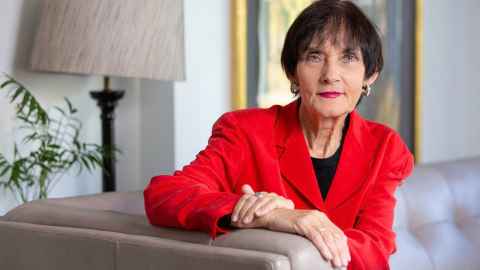Lawyer Marie Dyhrberg: Media influence before a trial is a threat to justice
19 May 2021
Opinion: Marie Dyhrberg says trial by media, and social media, creates a perception of guilt before a verdict and can provoke an ill-informed public frenzy akin to a lynch mob. So how can we ensure fair trials?

Distorted and sensational reporting should never become the primary influencers in a trial.
As a defence lawyer for more than 35 years, I have been challenged and sometimes even despised by people who ask, ‘How can you defend someone who is guilty?’
Few people have asked me, “How can a prosecutor condemn an innocent person?” Or “What if that innocent person was found guilty and unfairly sentenced to prison?” This is why I vigorously defend my clients. Few people are made to confront those questions. Guilt founded on tainted evidence or evidence disseminated through the media is not justice.
There are few topics as complicated as the guilt or innocence of a person charged with a crime, especially a crime that has excited insatiable public interest. With mainstream media less restrained in publishing all manner of so-called evidence in an unaccountable manner, along with opinions and assessments of cases without knowing the full extent of that evidence, there’s a real threat to fair trial rights. Then there’s social media, which seems to be a law unto itself.
Trial by media is a term that describes the impact of broadcast, newspaper and social media coverage on an accused’s case and reputation by creating widespread perception of guilt before, during and after the verdict. The media can provoke an atmosphere of ill-informed public frenzy akin to a lynch mob, that makes a fair trial almost impossible.
The media has the power to change whole viewpoints through which the public, including future jurors, perceive various events – to the prejudice of an accused. To achieve a fair trial, there must be vigorous constraints on media soundbites or sensational reporting to curb any encroachment on a court’s jurisdiction to determine guilt or innocence through due process. This prevents bias, prejudice and predetermination of any criminal case.
All too often details and assessments of potential evidence are published before a person appears in court, rendering futile any application for suppression of name or facts. News crews interview neighbours and ask them to comment on the occupants of a property, or what they believe has happened. The golden principles of the presumption of innocence, and guilt beyond reasonable doubt, go unheeded. Even when this undue media influence occurs, building public opinion against the accused, there are few or no sanctions imposed on the media painting a picture of an alleged criminal.
Social media is a way of modern life, but its impact on fair trial rights is still being investigated. Research indicates that social media engagement with criminal trials leads to a greater public desire for vengeance and encouragement of vigilante attitudes and behaviours.
There have been many cases where people were found guilty only to have their case proved a miscarriage of justice years later, after new evidence emerges and technologies improve. This is the importance of defending the accused and preserving fundamental fair trial rights until the final moment. If the case cannot be proved, they are not guilty. They walk free. That is justice.
Guilt founded on tainted evidence or evidence disseminated
through the media is not justice.
Today, rather than the well-founded legal principle of the presumption of innocence until found guilty, the presumption of guilt is often assumed. This is communicated to society through the media with little regard for the legal responsibility to prove a charge ‘beyond reasonable doubt’ and is a degradation of important legal principles. Distorted and sensational reporting should never become the primary influencers in a trial.
So, who protects fair trial rights against illegitimate publications by the media and social media? It is the criminal defence lawyer. When confronted by adverse public opinion, I remind everyone that I am fighting to ensure the rule of law prevails. One thing is clear: ready access to online information presents unique challenges to the justice system, but the pervasive influence of media must be strongly checked, always.
I’ll continue to target unfair practices created when media reincarnates itself as a ‘public court’ and I’ll denounce trial by media where public opinion against an accused is built up through unjustified influence. Freedom of speech is not absolute. No one, including the Fourth Estate, is above the law.
About the author: Marie Dyhrberg (LLB) is a Queen’s Counsel specialising in criminal law, human rights law and international criminal law.
What do you think? Have your say when this story is posted on the Alumni and Friends Facebook page or email ingenio@auckland.ac.nz.